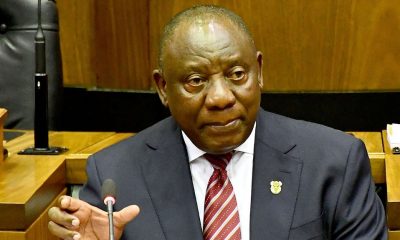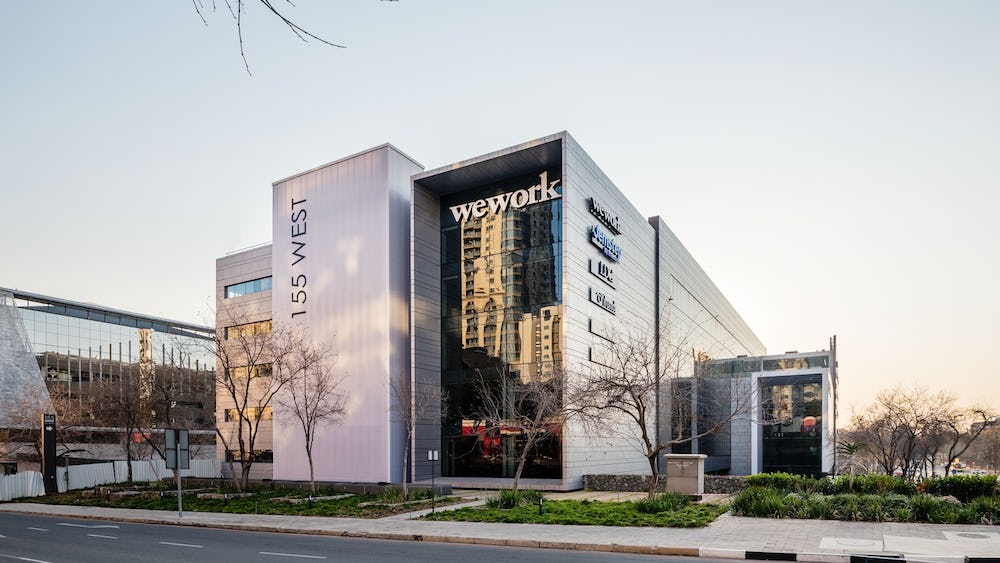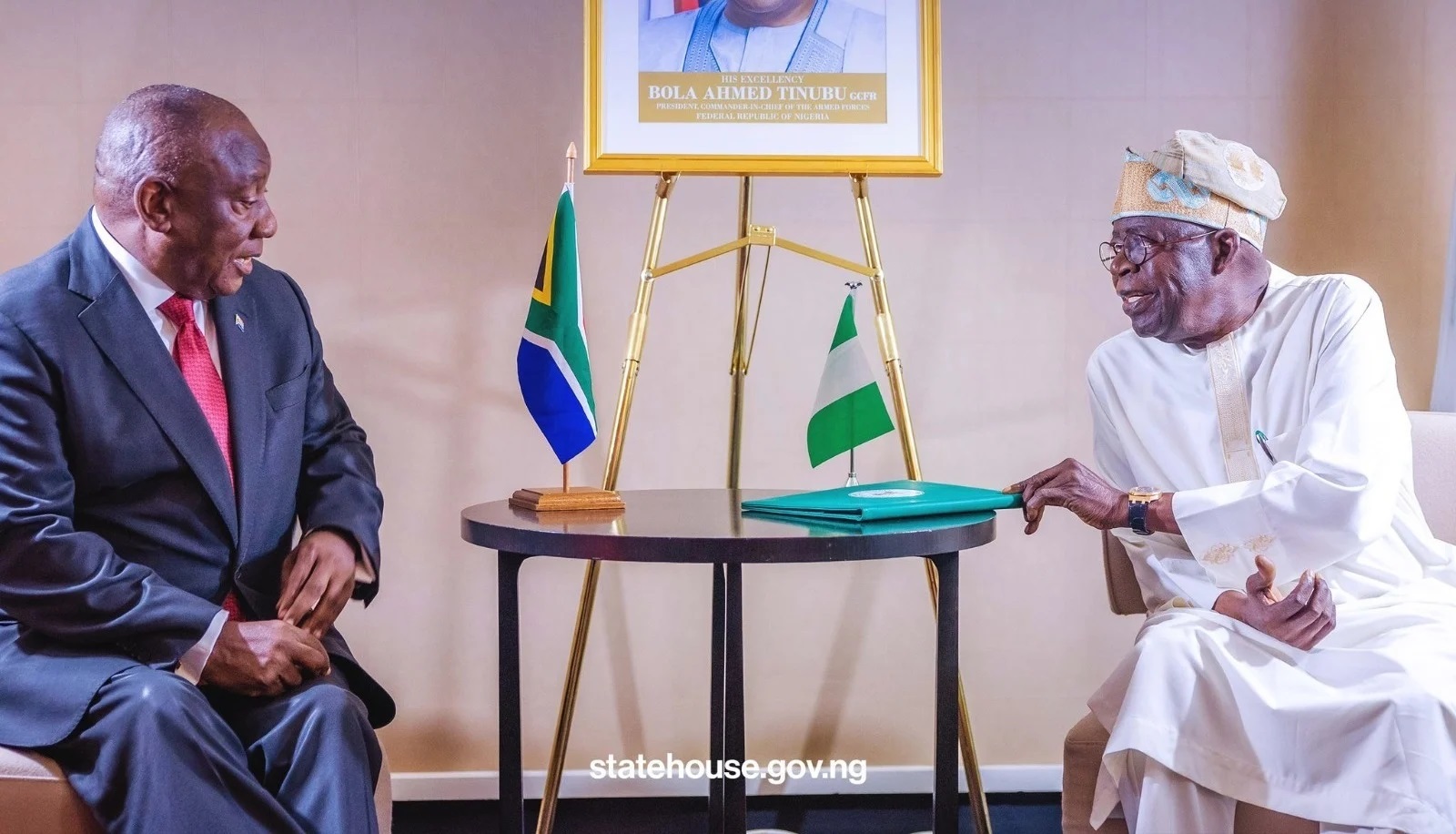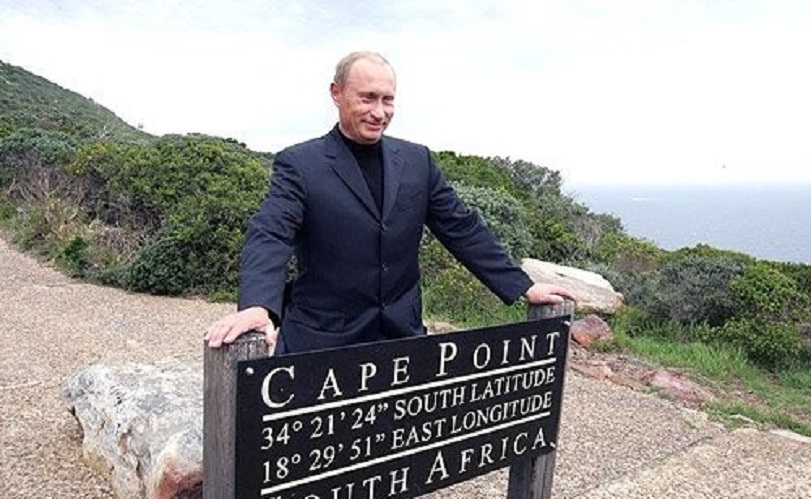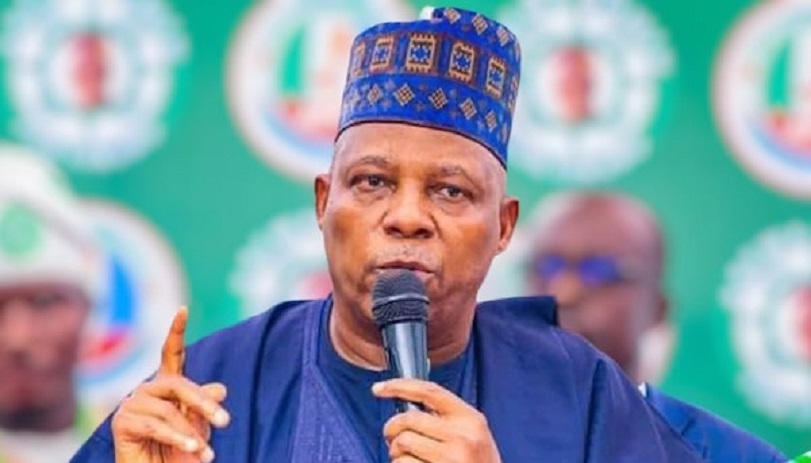Auto
Volkswagen Invests $513m in South Africa
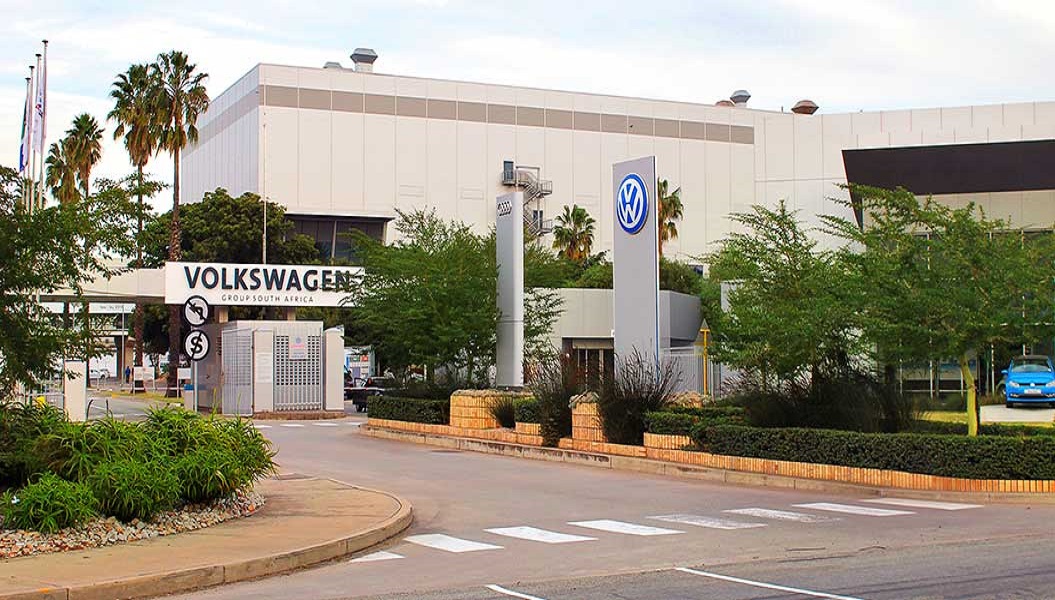
By Dipo Olowookere
Volkswagen has launched its new Polo and showcased the R6.1 billion ($513 million) investment in its plant and new products, in the presence of Eastern Cape Phumulo Masualle, the Deputy Minister Bulelani Magwanishe of the DTI, media representatives and key stakeholders.
In August 2015, VWSA Chairman and Managing Director, Thomas Schaefer announced an investment of around R4.5 billion rand in new product and facilities. The total investment exceeded R6.1 billion rand, which is partially due to exchange rate fluctuations and the approval of additional plant investments.
The majority of the investment spend was on Capital Expenditure for production facilities, local content tooling, quality assurance and manufacturing equipment as well as Information Technology upgrades.
Localisation remains a key priority for VWSA, with the new models at a 60% local content level, with on-going plans to achieve higher levels.
Volkswagen introduces the innovative One-line Concept for the first time as part of the investment; traditionally vehicles are assembled on unique production lines.
It has always been possible to build derivatives of the same platform on one line, but to build two completely different platforms on one line is a technical challenge, highly complex and requires new thinking and training for the employees.
The introduction of the one line concept also includes a new integrated logistics concept. Whilst there are no short term financial benefits there are synergies and efficiencies as well as people benefits that come about as the result of the one line concept.
Volkswagen is the only vehicle manufacturer which has the words “car” and “people” in its name. This remains relevant and true today. In line with being a socially responsible employer VWSA did not release any employees as the production volumes decreased during the ramp up, but rather retained them in training pools until the third shift commences in April, this year.
VWSA produced 110 000 cars last year, this will increase to 133 000 for 2018 of which 83 000 will be exported to markets around the world. This will include not only right hand drive markets but also to some left hand drive markets, especially for the Polo GTI. Maximum annual plant capacity is expected to be reached with a 3 shift operation of some 160 000 vehicles, in 2019.
Basic economic fundamentals and an investor friendly legislative framework within a reasonably stable economic environment are essential when making major investment decisions for Volkswagen, as is a stable and attractive automotive policy. “The South African Government must be complimented, firstly for the introduction of the MIDP, which gave confidence to the industry and provided a stable base for the successor programme; the APDP which has also been successful in ensuring a future for the automotive sector in South Africa. The Automotive Sector of the South African economy accounts for approximately 7.4% of the GDP and accounts for the direct employment of 113 000 people. I am convinced that the next phase of the APDP will continue in the same vein and allow for continued automotive investment,” said Thomas Schaefer, Chairman and Managing Director of Volkswagen Group South Africa.
The Premier of the Eastern Cape Phumulo Masualle said ”The automotive sector is one of the key sectors in our provincial economy mix, which we believe, alongside the Oceans Economy, Agriculture and Energy, if correctly leveraged, can see the Eastern Cape Province not only grow the regional economy and contribute towards further national economic growth but also become a leader in the drive to modernise and re-skill our work force. We are particularly encouraged by Volkswagen South Africa’s commitment to not only their continued and expanding investment in the South African economy, but also bold initiatives such as the announcement of an R86 million grant to SMMEs located in the manufacture and distribution space of automotive parts. This is a clear signal of the private sector accepting that South Africa’s future prosperity will depend on the societal effort all of us are prepared to invest, not just Government. We hope to continue our partnership to undertake a skills revolution in our province by jointly entering into training ventures so that we may be able to improve our skills base as an economy but also increase the employability and entrepreneurial prospects of our people.”
Deputy Minister Bulelani Magwanishe of the DTI commented “As the government, our commitment to local vehicle production is supported in our Industrial Policy Action Plan (IPAP); with a prime focus on adding value in the manufacturing and industrial sector. Export promotion, job creation and inclusive growth remain as the fundamentals of this policy. It is a privilege to commend VWSA on the launch of its new Polo and its investment of R6,1 billion. Therefore, this investment is particularly relevant to ensure expansion, socio-economic impact and the inclusion of Black Industrialists.”
“We also believe in the long term future of South Africa and Africa, for this reason the Volkswagen Group has created its fourth international region; the Sub Saharan Africa Region with VWSA being fully responsible for the region which will have substantial benefits for our company in South Africa. I believe that there are truly unique opportunities for us as an industry that we need to grasp, specifically here. As the automotive industry goes through radical change with electrification, autonomous driving, digitalisation etc. we must be ready to grasp these opportunities in Sub Saharan Africa”. added Mr Schaefer
The Volkswagen Group retained its number one position in the passenger market for the 7th consecutive year in 2017, achieving a 21.8% market share. One in every 5 cars bought by South Africans last year is either a Volkswagen or an Audi. The Volkswagen brand in the run-out year, of its volume models, the Polo and Polo Vivo achieved a share of 18.9% meaning that the Volkswagen Brand was the passenger market leader, even without its sister brand Audi.
The Polo Vivo and Polo have also been ranked the best selling cars in South Africa since launch in 2010. That is for 7 consecutive years. They are being replaced by the new Polo launched at the event and the new Polo Vivo which will be launched next month. “No doubt these will fare even better in the market in 2018 which we see increasing slightly too some 375 000 passenger cars from the 368 000 in 2017”, commented Thomas Schaefer.
Auto
inDrive Ranks Second in Ride-Hailing App Downloads Globally
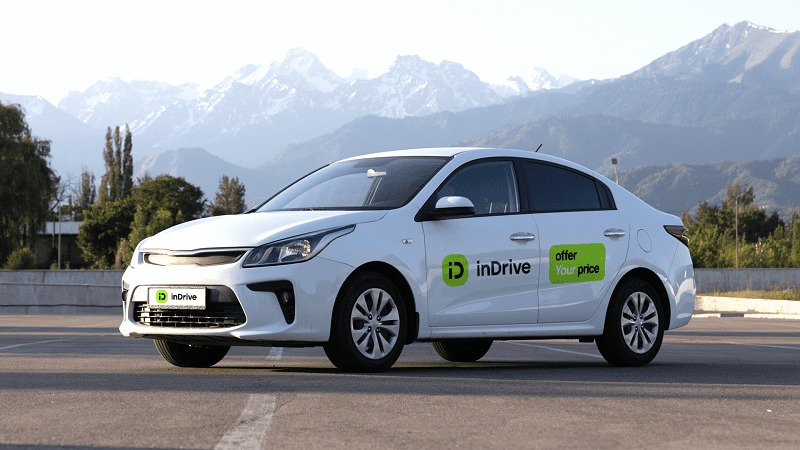
By Modupe Gbadeyanka
A global mobility and urban services platform, inDrive, for the fourth consecutive year, has emerged as second in ride-hailing app downloads in the world.
In its latest report, a leading market intelligence firm, Sensor Tower, also disclosed that the company ranked fourth globally in the travel category for downloads, up from fifth place in 2024, reflecting growing engagement as it continues its transition into a super app.
It was also revealed that inDrive was ranked number one in the travel category by downloads in nine countries, with newcomers to the list including Peru and Pakistan, and placed among the top three most downloaded travel apps in 22 countries.
The chief executive of inDrive, Mr Arsen Tomsky, while commenting on these feats and others, said the continued rise underscores a broader shift toward multi-service platforms that deliver everyday value while remaining closely aligned with local market needs and user expectations.
“Maintaining our position as the world’s second most downloaded ride-hailing app for a fourth consecutive year is a powerful validation of the value inDrive delivers to its users every day.
“This recognition reflects the trust people place in our platform and the continued dedication of our global team.
“As inDrive evolves into a super app, we remain focused on our core principles of fairness, transparency, and user choice, while expanding access to services that make a meaningful difference in people’s daily lives,” Mr Tomsky said.
The latest report highlights that super app ecosystems are becoming a key growth driver for the ride-hailing industry, particularly in emerging markets where users are engaging more frequently and across a broader range of use cases.
The inDrive app – defined by its peer-to-peer pricing model that allows drivers and riders to agree on a fair price mutually – has now been downloaded over 400 million times since its launch. Available in 1,065 cities worldwide, it has facilitated more than 8 billion transactions.
The platform operates across 48 countries, driven by strong global adoption, including growing momentum across Africa and continued growth in Nigeria.
In 2025, inDrive accelerated its transition into a super app, expanding beyond its core ride-hailing offering to offer additional services, including intercity transportation, courier, grocery delivery, and financial services.
By expanding its offering and meeting more of its users’ daily needs, inDrive is driving deeper and more frequent user engagement – an approach that underpins its continued global momentum.
Technology under the hood, including AI and advanced analytics, plays a significant role in supporting this evolution by enabling greater personalization and more seamless user experiences.
From using machine learning to fix mapping gaps and deliver more accurate ETAs, to predictive analytics that anticipate user needs and personalize service offerings, these capabilities drive innovation. In contrast, ensuring users retain complete control over pricing decisions is consistent with inDrive’s commitment to fairness through choice.
Auto
GoCab Receive $45m to Scale Ethical Mobility Financing Platform
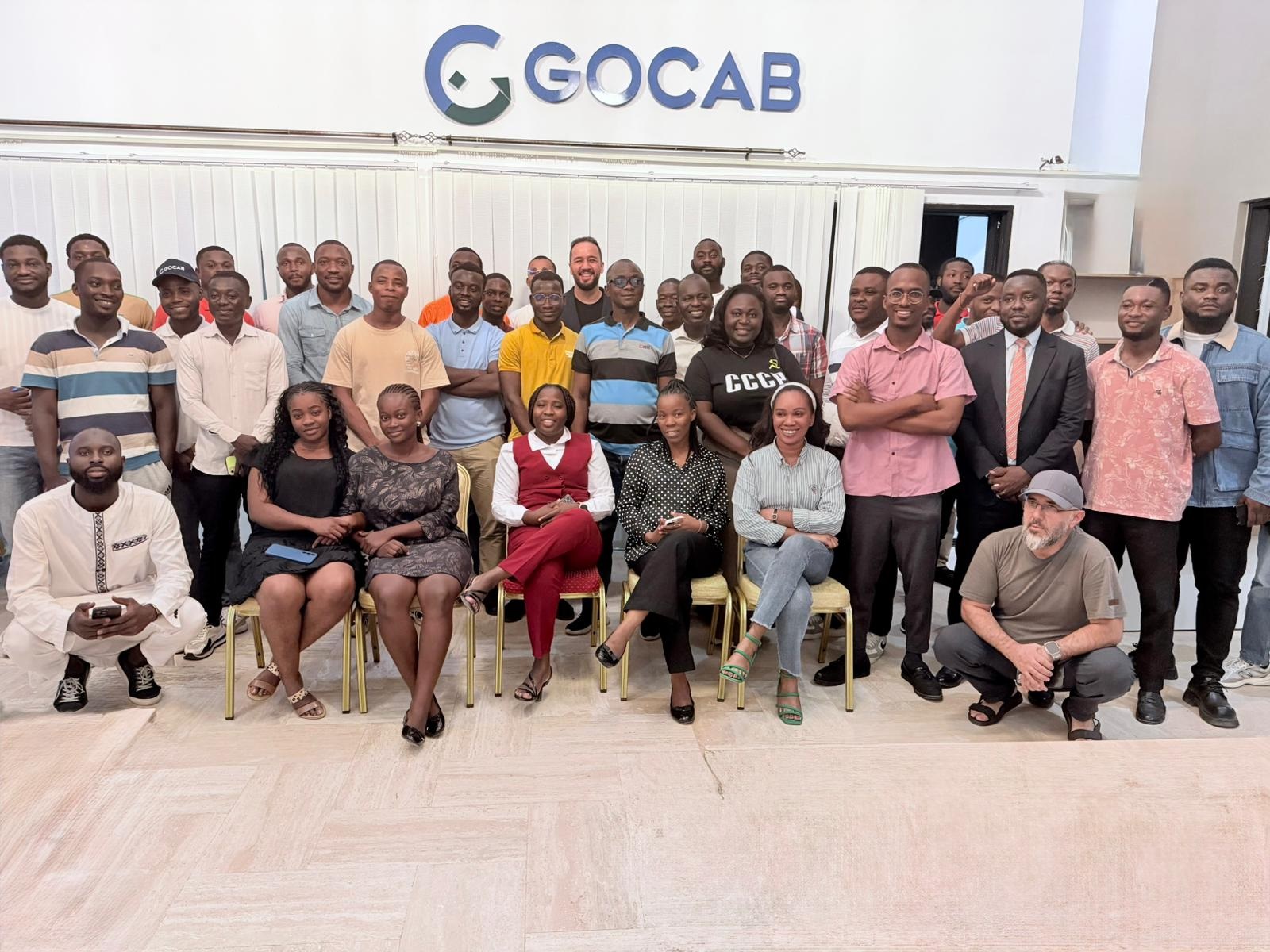
By Dipo Olowookere
A funding package of up to $45 million has been secured by a mobility fintech firm, GoCab, to scale its ethical mobility financing platform across emerging markets.
A statement made available to Business Post disclosed that the funds comprise $15 million equity and $30 million debt, with the equity round co-led by E3 Capital and Janngo Capital. Others involved in the transactions were KawiSafi Ventures and Cur8 Capital.
GoCab operates a drive-to-own mobility fintech model that provides credit to gig-economy workers to buy their own car, bike and others in emerging markets.
It offers vehicles in drive-to-own programmes, mobile phone BNPL, motorbike financing for delivery couriers, and other value-added services through a single digital platform powered by proprietary technology.
With this financing support, GoCab plans to expand its operations and fleet, aiming for 10,000 active vehicles and $100 million in annual recurring revenue within the next 24 months.
Across five markets, GoCab now generates over $17 million in Annual Recurring Revenue (ARR) after just 18 months of operations and is on target to reach $50 million by end of 2026 and $100 million in 2027.
The company was established in 2024 by Mr Azamat Sultan and Mr Hendrick Ketchemen to address the limited access to ethical financing and vehicle ownership for gig-economy workers in Africa.
By combining mobility, technology, and inclusive finance, the organization enables drivers and delivery couriers to generate stable income while progressively gaining ownership of their vehicles.
By 2025, GoCab had taken a leading position in several African markets, supporting thousands of drivers and contributing to cleaner, more sustainable urban mobility systems.
“Transforming lives and improving the daily reality of thousands of families is the mission we have set for ourselves. We believe that capital can and must become a powerful force for transformation across Africa and emerging markets,” Mr Ketchemen said.
His counterpart, Mr Sultan, disclosed that, “For us, GoCab is about restoring dignity and opportunity through ownership.
“Across Africa, millions of people are locked out of both mobility and finance. We saw how capital was flowing everywhere except to the people who actually needed it to work.
“This round allows us to scale responsibly expanding access to fair, ethical financing while accelerating the transition to electric mobility, lowering carbon emissions, and building a more inclusive and sustainable future in close alignment with our investors.”
One of the investors, Mr Vladimir Dugin of E3 Capital, said, “The shortage of vehicles and the high cost of transportation remain two of the most pressing challenges across Africa. GoCab is addressing both head-on through a data- and technology-driven platform that expands access to mobility while improving efficiency at scale.
“Its rapidly growing EV fleet lowers costs for riders and drivers alike, while significantly reducing emissions. We are proud to support GoCab as it builds the leading pan-African mobility platform for the future.”
“We are proud to lead GoCab’s $15 million equity round, catalysing over $30 million in debt financing. We were impressed by their vision, their world-class team, and the quality of their execution.
“With this funding, GoCab now has the scale to deploy thousands of productive vehicles, each supporting a full-time income.
“With a clear operational roadmap toward 10,000 active assets and $100 million in recurring revenue, GoCab illustrates how ethical financing can translate into tens of thousands of decent jobs, household resilience, and sustainable growth at scale,” the chairman of Janngo Capital, Fatoumata Bâ, stated.
Also, a partner at KawiSafi Ventures, Mr Marcus Watson, said, “GoCab is building critical infrastructure for climate-smart mobility and the future of work in emerging markets. The combination of disciplined execution, strong unit economics, and a clear impact thesis makes GoCab a compelling platform for sustainable growth.”
Auto
Demolitions: inDrive Shares N75m Relief Packages to Displaced Lagos Residents
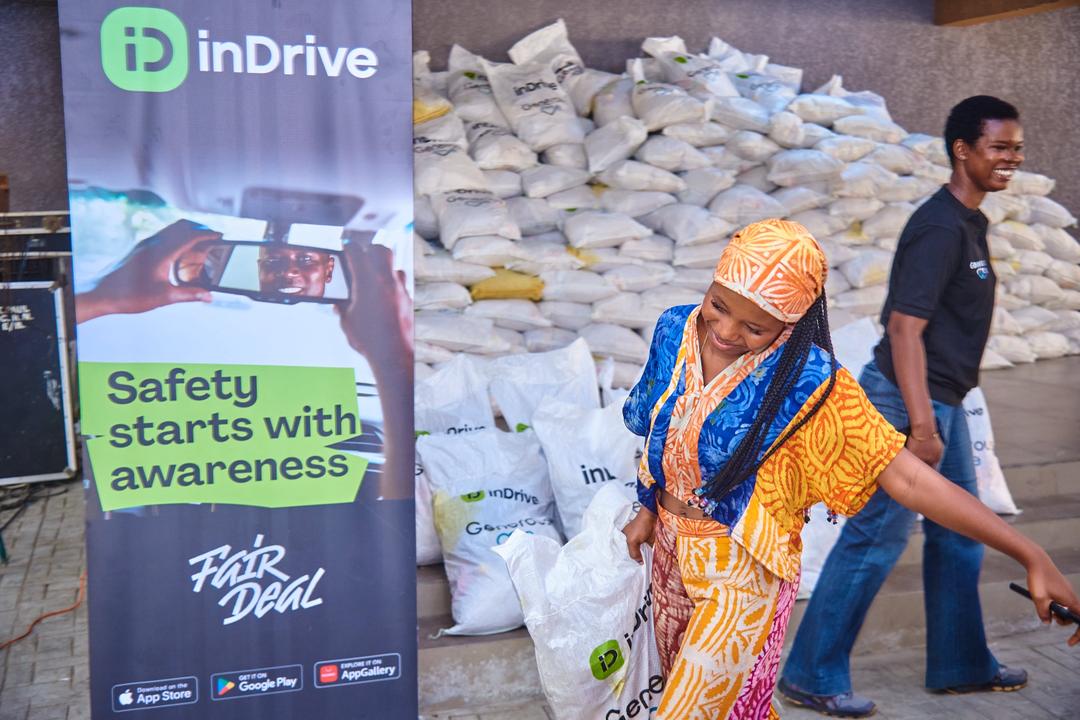
By Modupe Gbadeyanka
Over N75 million worth of relief materials have been provided by foremost ride-hailing platform, inDrive, to residents of Lagos State displaced by recent demolitions in the metropolis.
The company partnered with Tolu Aniwura Welfare Foundation (GenerousMe) to distribute essential food, clothing, and school supplies to more than 2,000 affected individuals and families.
At the distribution of the items at St. Paul Catholic Church, Ebute-Metta, the Country Representative for inDrive Nigeria, Mr Timothy Oladimeji, explained that the initiative reflects the company’s people-first approach and its commitment to responding directly to urgent community challenges while maintaining a focus on long-term empowerment across its markets.
“At inDrive, we believe that our responsibility goes beyond providing mobility services; it extends to standing with communities during moments of need.
“The recent demolitions left many families vulnerable, and through our partnership with GenerousMe, we were able to respond quickly and responsibly. This intervention reflects our commitment to fairness, empathy, and ensuring that people remain at the centre of everything we do,” Mr Oladimeji said.
It was gathered that the support also extended to individuals who had previously benefited from inDrive-backed social impact programmes, reflecting the company’s continued commitment to empowering vulnerable communities across Nigeria.
The relief packages included essential dry food items such as rice, beans, garri, noodles, spaghetti, cooking oil, tomato paste, seasoning cubes, and salt. Beneficiaries also received clothing, blankets, sleeping mats, mosquito nets, rechargeable lamps, power banks, and baby care items, as well as school packs containing bags, exercise books, and writing materials for children.
In his remarks, the Partnerships Lead for GenerousMe, Mr Adetola Alade, said, “Partnering with inDrive enabled the timely and coordinated delivery of aid. We prioritize speed and collaboration in responding to urgent humanitarian needs, and working with inDrive on this project was a great experience.”
-

 Feature/OPED6 years ago
Feature/OPED6 years agoDavos was Different this year
-
Travel/Tourism9 years ago
Lagos Seals Western Lodge Hotel In Ikorodu
-

 Showbiz3 years ago
Showbiz3 years agoEstranged Lover Releases Videos of Empress Njamah Bathing
-

 Banking8 years ago
Banking8 years agoSort Codes of GTBank Branches in Nigeria
-

 Economy3 years ago
Economy3 years agoSubsidy Removal: CNG at N130 Per Litre Cheaper Than Petrol—IPMAN
-

 Banking3 years ago
Banking3 years agoSort Codes of UBA Branches in Nigeria
-

 Banking3 years ago
Banking3 years agoFirst Bank Announces Planned Downtime
-

 Sports3 years ago
Sports3 years agoHighest Paid Nigerian Footballer – How Much Do Nigerian Footballers Earn



